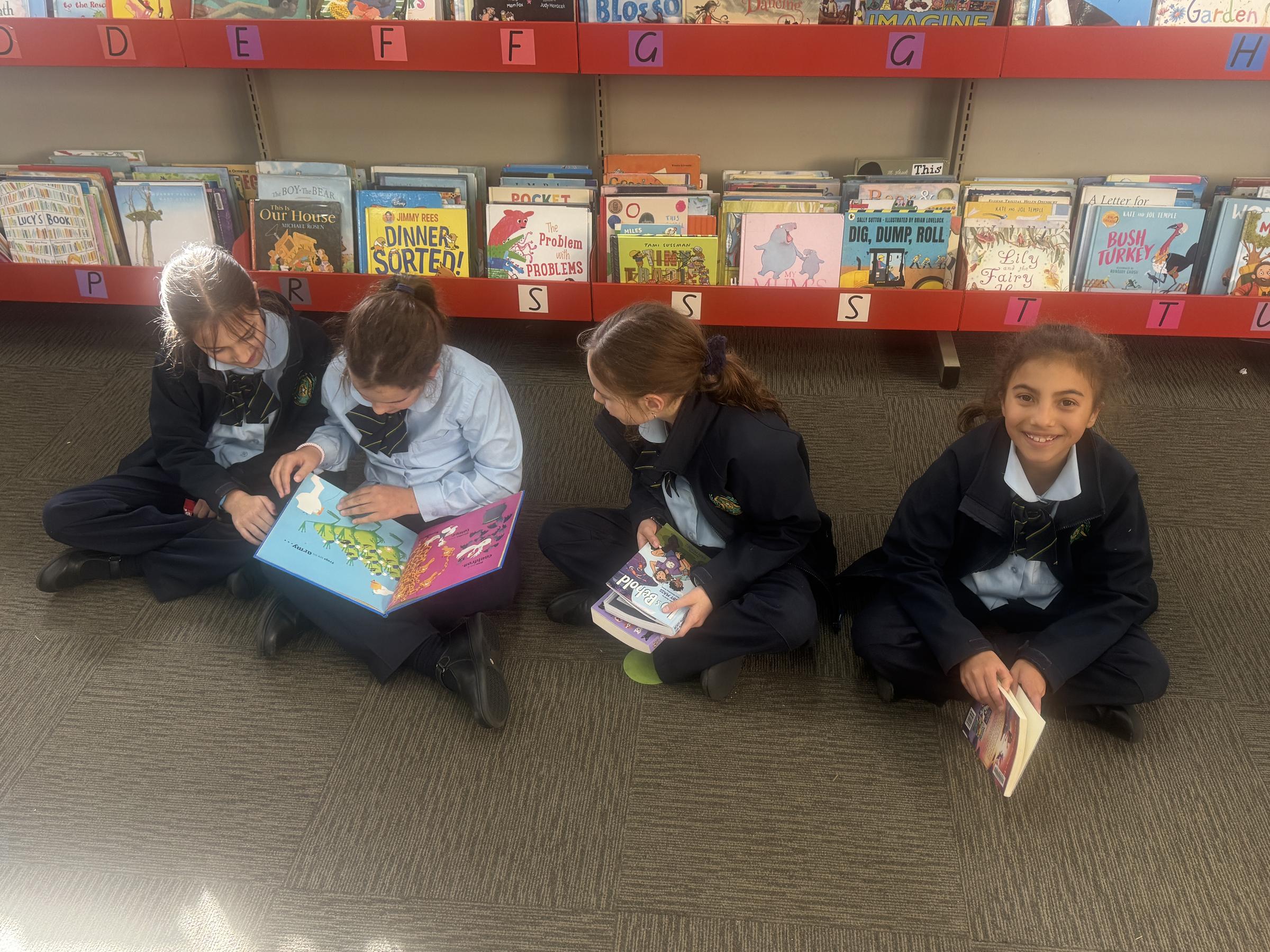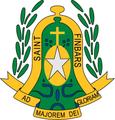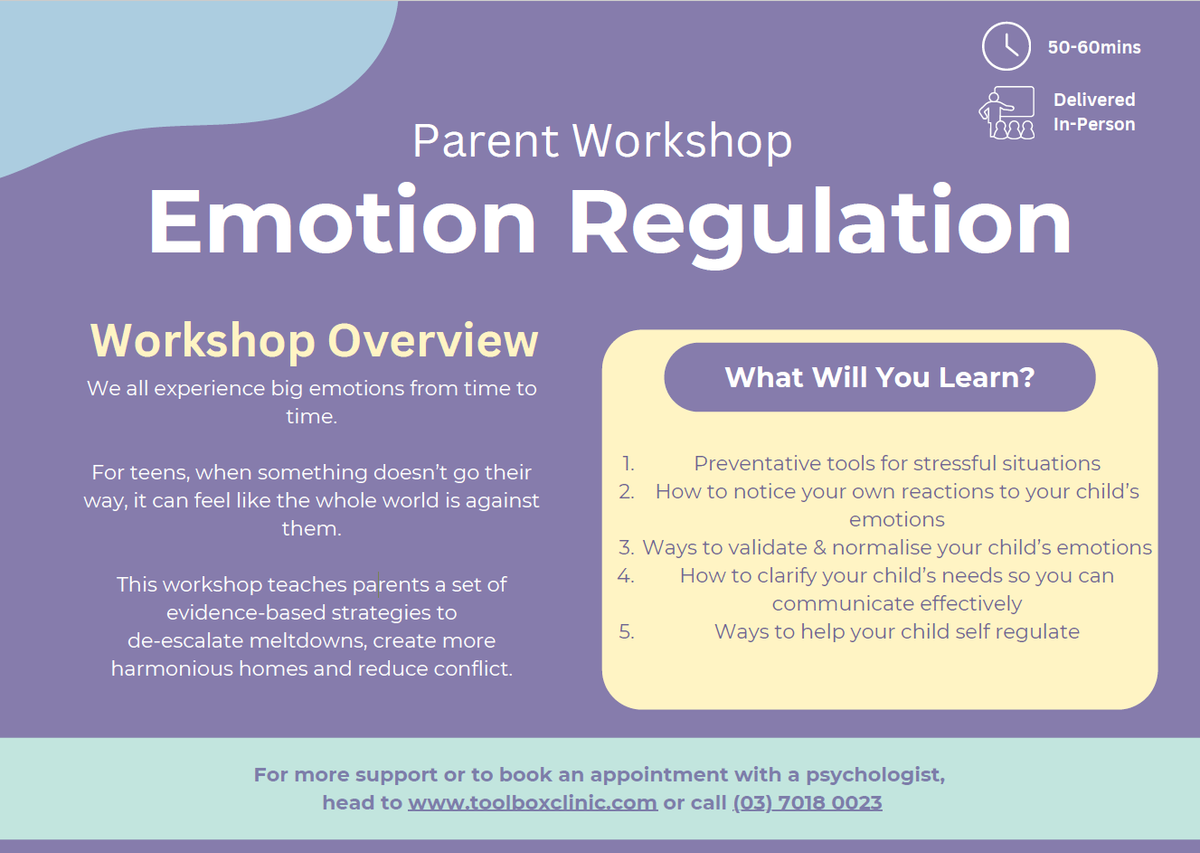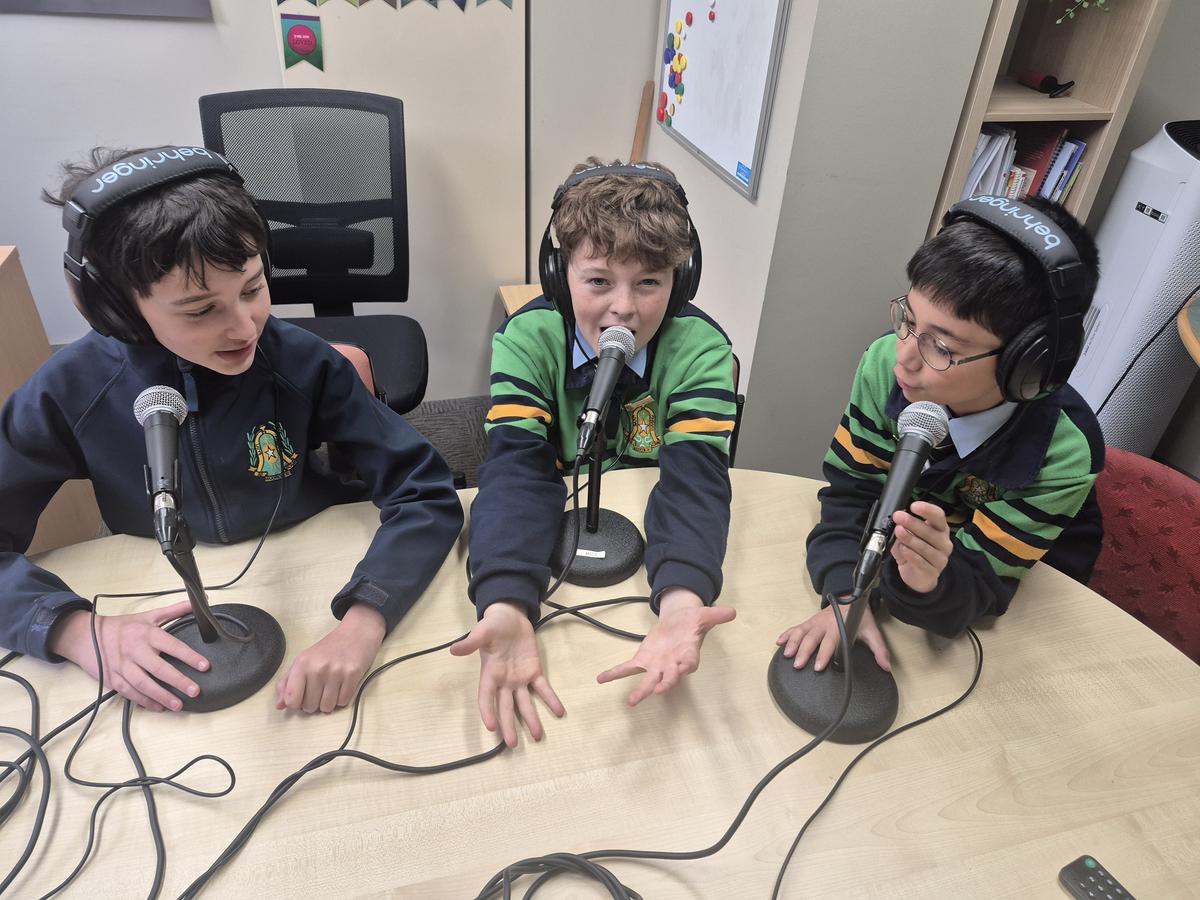Deputy Principal's Report

Hello!
Save the Date
We are excited to invite all families to a special Parent Information Night hosted by Toolbox Psychology with Psychologist David Berlinski. This valuable session will take place on Tuesday 1st July, 2025, from 7:00pm to 8:00pm in the school hall and is relevant for all families with children of any age. David will share a range of evidence-based strategies that support children and adults with emotional regulation. Please refer to the image on the right for more information. It is a wonderful opportunity to gain practical tools and insights to support your family’s wellbeing – we encourage all parents and carers to attend.
Excellence – The St Finbar’s Way
Celebrating Students Who Strive to Be Their Best
Welcome to the first edition of Excellence – The St Finbar’s Way, a special spotlight in our school newsletter that celebrates students who have demonstrated outstanding effort, growth, and achievement across all areas of school life. At St Finbar’s, we believe excellence is not just about results—it’s about dedication, resilience, and striving to be the best you can be. In each edition, we will proudly highlight students who have embodied these values and inspired those around them through their commitment to learning and personal growth.
This week we have Felix (FH), Teo (TD) and Alexander (AC) from Year 6 who have been working hard on creating podcasts using the equipment that we have here at St Finbar’s. A lot of their work has been done in their own time which shows great dedication and passion for creating interesting content! Here’s what the boys had to say about their podcast:
CM: What does it take to create a podcast?
FH: It takes a lot of teamwork. The equipment that we have here at St Finbar's are microphones, headphones and recording software.
TD: Yes, there is also some AI that can be used for background noises.
CM: What makes a good podcast?
FH & TD: A good podcast talks about interesting topics.
AC: It’s important that the topics are popular at the time.
CM: What roles do each of you have?
AC: My role is to be factual about the topic to generate discussion.
TD: All of our roles are pretty equal. We all bring a lot of ideas and conversation to the podcast.
FH: I agree with what Teo is saying. I feel like I try to find the right time to switch up the topic during the recording to keep the discussion going.
TD: Mrs. Norton does the technical side of things like pressing record, pause, stop and adjusting volume etc.
CM: What do you hope to achieve with your podcast this year?
AC: I really hope that we continue to find interesting topics that will entertain people.
TD: I hope we can grow our listeners and have people that regularly want to listen to our podcast.
FH: I hope we can achieve a milestone of 50 episodes!
CM: Give us a summary of the two episodes you have recorded so far.
AC: They are both about game reviews. We have reviewed multiple games.
TD: We describe the game and how it's played. We talk about the good and bad things of the games.
FH: So far we have discussed Roblox and Minecraft which are two pretty popular games and I think they’ve turned out well. The first one we planned for a lot but the second one we were just winging it which you have to do sometimes.
CM: What advice do you have for other students in the school who might be interested in creating a podcast when they get to Year 6?
TD: It helps if you and your friends have really similar interests and hobbies and know a lot about them.
AC: Find people who like the same things as you.
FH: Find people who would be ready at any time to do the podcast.
TD: Yeah, they’ve gotta be on schedule!
You can access the podcasts below - enjoy!
Nationally Consistent Collection of Data (NCCD) On School Students with Disability
Please see below a repeated message from the previous Newsletter - by law, I am mandated to provide this information to the school community 3 times leading up to August 1st - this is entry 2 of 3.
What is the Nationally Consistent Collection of Data?
Schools must now complete the Nationally Consistent Collection of Data on School Students with Disability (NCCD) every year. It counts the number of students who receive additional adjustments or “help” at school because of a disability. The NCCD helps governments plan for the needs of students with disabilities.
Who is counted in the data collection?
To count a student in the NCCD, schools must think through some key questions:
1. Is the student getting help at school so that they can take part in education on the same basis as other students?
2. Is the help given because of a disability? The word ‘disability’ comes from the Disability Discrimination Act 1992 (DDA) and it can include many students.
3. Has the school talked to you or your child about the help that they provide?
4. Has the school kept records about the help they provide, the student needs and the reasons that the student needs this help?
The school will need to keep copies of tests, student work, assessments, records of meetings, medical reports or other paperwork and information about how the student’s learning is moving along over time.
Once the school decides that the student should be counted in the NCCD, they then choose a disability group and one of four levels of help that has been given to the student.
What does the word ‘disability’ mean in the NCCD?
In the NCCD the word ‘disability’ comes from the Disability Discrimination Act 1992 (DDA). There are four types of disability that the school can choose from: sensory, cognitive, social-emotional and physical.
Many students that need help at school can be counted in the NCCD. For example, students with learning problems, e.g. specific learning disability or reading difficulty (sometimes called dyslexia), health problems (e.g. epilepsy or diabetes), physical disability (e.g. cerebral palsy), vision/hearing loss and social-emotional problems (e.g. selective mutism, Autism Spectrum Disorder, anxiety).
Letters from doctors or specialists can be very helpful for schools as they plan how to support students with their learning. Schools do not need to have these letters before they can count a student in NCCD. Teachers can use all that they know about the student’s learning and the records that they have collected over time to decide if a student can be counted in the NCCD.
What sort of help does the school give students?
Students need different types of help at school. Some students need a little help sometimes while other students need a lot of help nearly all the time. The type of help given depends on the needs of the student. The help can include changes to the school buildings or grounds (e.g. ramps or things like special desks or chairs), extra teacher help in classes, special learning programs, changes to the work they give the student or extra adult help.
How will the NCCD be different this year?
All schools have been counting students in the NCCD since 2015. The government will use the NCCD data as part of the funding to schools.
What will the school need to know about my child for the NCCD? Schools work together with families to understand the needs of each child. It is helpful if families give their child’s teacher a copy of any letters or reports they have. The letters or reports will help the school understand the child and the help that they might need. Letters from doctors, psychologists, speech pathologists, doctors, and occupational therapists etc. can be very helpful for schools. These reports along with information that the teacher has (i.e. school based tests, your child’s work and learning plans) helps the school to understand and meet your child’s needs.
What happens to the NCCD data? Who will have the NCCD information?
Each school principal must check the NCCD data in August of each year. The school will give the information to the Catholic Education Office. The school will work with the Catholic Education Office to make sure that the NCCD data is OK before they give the data to the government. The government will not be given the names of any students or any letters or records. Please ask your school for their privacy policy if you need to know more.
Does the school need me to agree with them about counting my child in the NCCD?
Amendments were made to the Australian Education Act 2013 and Australian Education Regulation 2013). Schools do not need you to agree to let them count a child in the NCCD. You cannot ask the school not to count your child.
Where can I find out more?
Please contact your child’s school if you have further questions about the NCCD.
Have a great week - May God Bless
Laura and Callum
Deputy Principals


